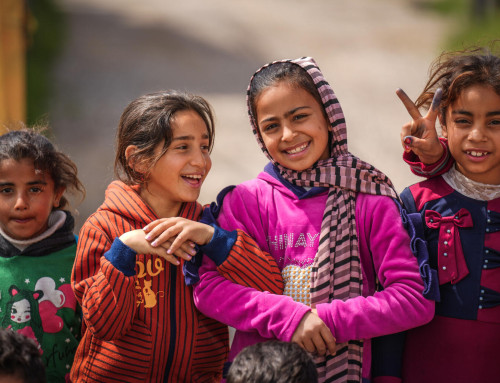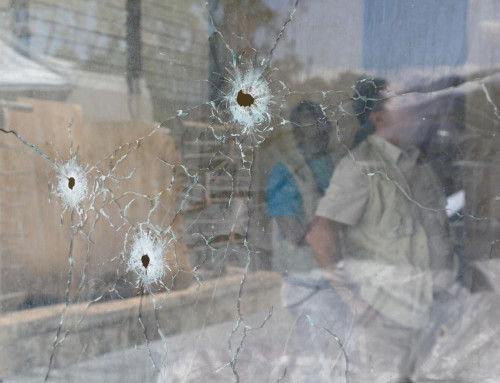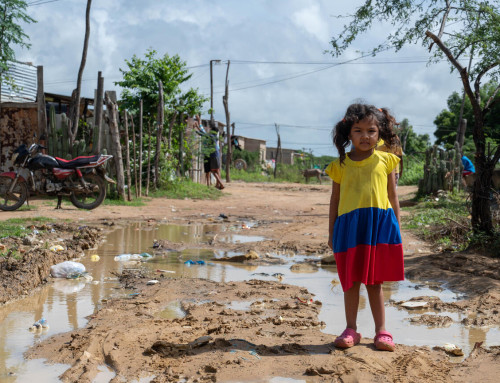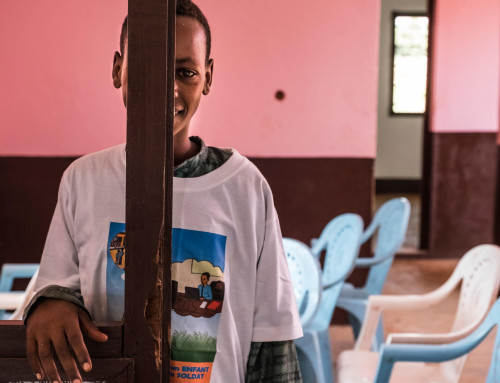“All of us here today agree on the importance of reintegration to help former child soldiers reclaim their lives. However, despite our efforts, we are still unable to assist everyone,” highlighted the Minister of Foreign Affairs and European Affairs of Belgium, Didier Reynders, at the opening of the event: Funding the Future: Challenges and Responses to the Reintegration of Child Soldiers.
Co-sponsored by the Kingdom of Belgium and the Office of the Special Representative of the Secretary-General (SRSG) for Children and Armed Conflict, the event brought together member states, civil society organizations and representatives of the United Nations, united to bring the support to former child soldiers to another level in an effort to radically improve their fate and ensure that they can find a place back into their societies and their communities.
Her Majesty the Queen of the Belgians, a strong advocate for the rights of the most vulnerable, particularly children, reminded that nearly 250 million children are living in places affected by conflict and violence. Reintegration of child soldiers, she added, is essential to help them reclaim their lives, but also to lay the ground for sustainable peace in their communities.
The SRSG for Children and Armed Conflict, Virginia Gamba, emphasized the vulnerability of children living in conflict zones, as they remain the first casualty of war. “Survivors are left with both trauma and stigma and without the possibility of reintegration, children are left with little hope to rebuild they lives,” she said.
The Special Representative further called for the creation of a global coalition on reintegration to provide the best possible reintegration programmes to former child soldiers by ensuring broad support and knowledge sharing. Despite the global agreement on the importance of reintegration to help former child soldiers, assistance cannot reach everyone and more needs to be done to ensure that the thousands of children who are in dire need of help receive an appropriate support, she pleaded.
Supporting the release and reintegration of those children is part of UNICEF’s core action reminded Omar Abdi, the Deputy Executive Director of UNICEF. He added that the exit process from armed groups and forces takes time and that the needs of children are different. “Reintegration work must to be part of a system. We cannot fail these children,” he stressed.
Human rights advocate and ex-child soldier Mohamed Sidibay, of Sierra Leone, touched the audience when he shared his personal story, in a moving plea for more support to released children. “I was five years old when I was recruited. Too young to go to school. Too young to cross the street alone. Too young to tie my own shoelaces. But, old enough to watch the life flicker out of my family’s eyes. Old enough to carry a gun,” he said. 
Nigeria Representative highlighted the difficulties facing his country in supporting children released from armed groups. “Some of these children are deployed into the front lines, used as battle shields and asked to participate in suicide missions. It is disheartening to see how children continue to be recruited,” he added.
Chief Executive Officer at War Child UK, Rob Williams, pointed out the importance to secure financial needs for long-term and sustainable reintegration, as he presented the findings of a new study. A crucial call as the study showed a 30% fall in funding, impacting reintegration efforts in the past five years. He also noted the importance to address the root causes of recruitment and to work not only on reintegration but also on prevention, to limit the number of children who joined armed groups and forces.
The President of Malta, H.E. Marie-Louise Coleiro Preca, stressed the importance of providing services to children on the move no matter where they are. Displaced children should also be supported as no child should not be left without access to education for long periods of time, she said. Around 30 million children have been displaced by conflict, noted UNICEF in June 2018.
Maninder S. Gill from the World Bank, an important partner in financing reintegration programmes for ex-child soldiers over the past 25 years, shared some of the lessons learned. “We need to do much more, both in terms of quantity and quality. We cannot only focus on DDR programmes, we have to look at development as a whole. It’s not a linear process, it’s not a short-term process,” he said adding that it is also crucial to work with communities.
“On behalf of over 50 million children uprooted and on the move, over 264 million children who cannot go to school because of the geography of their birth, I beg you all to please increase funding for education. Increase your commitment to peacebuilding. Do not give up on former child soldiers,” concluded human rights activist Mohamed Sidibay.
Watch the event: Funding the Future: Challenges and Responses to the Reintegration of Child Soldiers






